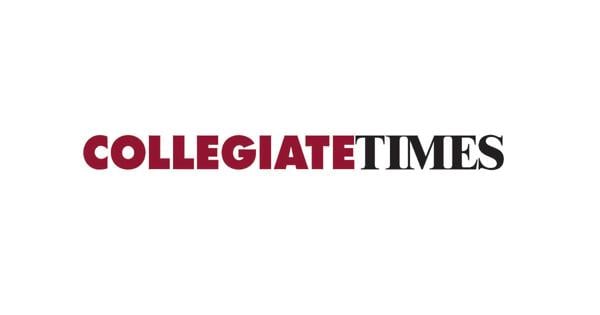Health and environmental policy: Local to national scale | News

Virginia Tech held a Health and Environmental Policy panel on Feb. 20 to discuss recent local and national developments in different environmental sectors.
“This issue requires a global approach,” said Austin Gray, panelist and assistant professor of biological sciences at Virginia Tech.
The event took place from 12- 2 p.m. in Norris Hall and was hosted by +Policy Network and the Science Policy Education and Advocacy Club. +Policy Network is an organization which is a cross-university and interdisciplinary group that aims to raise the visibility of policy and policy-related research and practice across the university, according to their website homepage. The Science Policy Education and Advocacy club is a group of scientists, engineers and members of other disciplines who believe that science has an important place in policy and government. Education, advocacy and communication are the three aims, according to their website homepage. The panel entailed four panelists, a moderator and a discussant.
The panel encapsulated the differences between local government policies, federal and international government policies and the change in presidency and how it has affected environmental policy.
“There is a duty for us to do something,” Gray said.
Gray focuses on aspects of policy that effectively help or hinder the decline in use of plastics and microplastics.
The panel followed a rough outline of two prompts; the first prompt initiated a conversation about federal and international policy, and the second prompt entailed a conversation about state and local government policies.
“Trends [that are bad for the environment] catch on much quicker than we realize,” said Ryan Calder, panelist and assistant professor of Environmental Health and Policy at Virginia Tech.
Calder added that after the Biden administration, many funds have been frozen that were once helpful for environmental policy. He explained that the Inflation Reduction Act is the most transformative.
The Inflation Reduction Act’s regulations impact these policies because of the way it affects clean energy tax credits. With the passing of the act local, federal or pay-eligible entities would be able to jointly invest in clean energy projects.
“They’ve only looked at U.S. impacts, not whole world impacts,” Calder said.
Gray explained that no one should feel guilty for owning a plastic bottle or even using single use plastic, but said that this affects everyone and feeds into a larger issue of capping production. Gray added that under Biden’s presidency, there was a cap on plastic production, and Trump has since removed that cap and signed off on getting rid of paper straws.
“The Biden administration put a lot of money toward conservation,” said Luke Goodman, panelist, Ph.D. student in planning, governance and globalization and U.S. Senate intern.
Goodman explained that during their implementation stage there is a lot of funding available but there are factors preventing them from using the money. Goodman added that a lack of resources makes it difficult to use the money, and organizations must spend all the money before it gets taken away.
Ralph Hall, panelist and professor of urban affairs and planning at Virginia Tech agreed with Goodman. Hall explained that many aspects go into the cost of passing acts or policies and went on to explain the acts that have recently had no progression.
“If their project doesn’t fall within … that time period, there is a lack of progression,” Goodman said.
As the panel progressed, the panelists continued to agree on the money aspect of policies and explained their relevance to the questions.
After the moderator, Julia Gohlke, in the Department of Population Health Sciences offered up prompts to the panelists, she then opened the discussion to the discussant.
“One theme that could come out of this is politics,” said Daniel Breslau, discussant and assistant professor in the department of science, technology and society. “The problem with policy is politics.”
Around an hour and a half into the panel, Gohlke extended the discussion to the audience members, and they were able to ask the panelists questions about the panel topic.
Audience members then raised questions, and the panelists furthered and finished the conversation about health and environmental policy.
Students or faculty members that are interested in learning more about the event can visit Virginia Tech’s SPEAC website.
link






